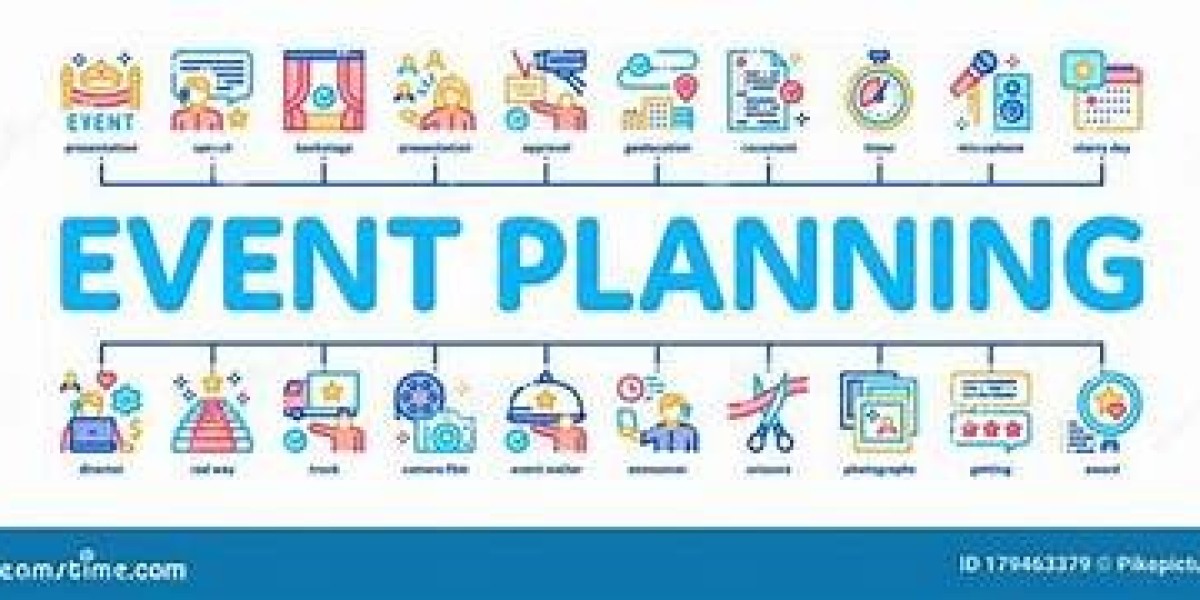Events and planning are both an art and a science. It requires creativity, organization, and the ability to manage multiple moving parts seamlessly. Whether you're organizing a corporate conference, a wedding, or a small community gathering, understanding the nuances of event planning can make the difference between a successful event and a stressful experience. This comprehensive guide covers everything you need to know about events and planning.
What is Event Planning?
Event planning involves organizing and coordinating all aspects of an event. From initial conception to execution and post-event analysis, it encompasses a wide range of tasks aimed at achieving specific goals and delivering memorable experiences.
Key Components of Event Planning
Objective Setting: Defining the purpose of the event.
Budget Management: Allocating resources effectively.
Venue Selection: Choosing the right location for the occasion.
Vendor Coordination: Managing relationships with service providers.
Logistics: Handling transportation, accommodations, and schedules.
Marketing and Promotion: Driving attendance and engagement.
Post-Event Analysis: Measuring success and gathering feedback.
Types of Events
Events can be broadly categorized based on their purpose, size, and audience. Understanding these categories helps in tailoring planning strategies.
1. Corporate Events
Corporate events include conferences, seminars, product launches, and team-building activities. These events aim to achieve business objectives such as networking, education, or brand promotion.
Examples:
Annual general meetings (AGMs)
Trade shows and expos
Workshops and training sessions
2. Social Events
Social events focus on personal milestones and celebrations, such as weddings, birthdays, and anniversaries.
Examples:
Engagement parties
Baby showers
Retirement celebrations
3. Community Events
Community events are designed to engage and benefit local populations. These often include cultural, recreational, or philanthropic activities.
Examples:
Festivals and fairs
Charity fundraisers
Sports tournaments
4. Hybrid and Virtual Events
With advancements in technology, hybrid and virtual events have become increasingly popular. These events blend in-person and online elements to reach wider audiences.
Examples:
Webinars
Virtual trade shows
Online concerts
Steps to Plan an Event Successfully
Effective event planning follows a structured approach. Below are the essential steps:
Step 1: Define Your Goals
Start by identifying the purpose of the event. Are you aiming to educate, entertain, or fundraise? Clear objectives guide all subsequent decisions.
Step 2: Develop a Budget
Create a detailed budget outlining expected costs for venue rental, catering, marketing, and other essentials. Factor in a contingency fund for unexpected expenses.
Step 3: Choose a Venue
Select a venue that aligns with your event’s goals, audience size, and logistical requirements. Visit potential sites to assess facilities, accessibility, and ambiance.
Step 4: Assemble a Team
Assign roles and responsibilities to team members. This may include event coordinators, marketing specialists, and on-site staff.
Step 5: Plan the Program
Design a schedule that outlines activities, presentations, and entertainment. Ensure smooth transitions between segments to maintain audience engagement.
Step 6: Promote Your Event
Use multiple channels to market your event. Social media, email campaigns, and partnerships with influencers can boost visibility and attendance.
Step 7: Execute and Manage
On the day of the event, oversee setup, coordinate with vendors, and ensure everything runs according to plan. Stay flexible to address any issues that arise.
Step 8: Evaluate Success
After the event, analyze feedback and performance metrics. Use insights to improve future events.
Tools for Event Planning
Technology has revolutionized event planning, offering tools that streamline various tasks. Here are some popular options:
Event Management Software
Platforms like Eventbrite and Cvent simplify registration, ticketing, and attendee management.
Project Management Tools
Tools like Trello and Asana help teams collaborate and track progress.
Communication Apps
Slack and Zoom facilitate seamless communication among team members and stakeholders.
Marketing Tools
Social media schedulers like Hootsuite and email marketing platforms like Mailchimp drive event promotion.
Challenges in Event Planning
Despite careful preparation, challenges can arise during the planning process. Common issues include:
Budget Constraints
Limited budgets require prioritization and creative problem-solving.
Vendor Dependence
Delays or errors by vendors can disrupt timelines. Always have a backup plan.
Last-Minute Changes
Unexpected cancellations or weather issues may necessitate quick adaptations.
Low Attendance
Effective marketing and clear communication are essential to ensure adequate turnout.
Tips for Successful Event Planning
Start Early: Give yourself ample time for preparation.
Stay Organized: Use checklists and timelines to track progress.
Communicate Clearly: Keep all stakeholders informed.
Focus on Details: Small touches can elevate the attendee experience.
Evaluate and Improve: Continuously refine your process based on feedback.
Real-World Examples
Coachella Music Festival
Coachella is a masterclass in event planning, featuring seamless logistics, top-tier entertainment, and unparalleled marketing efforts that attract global audiences.
TED Conferences
TED’s meticulous curation of speakers and topics ensures high engagement and thought leadership, making it a benchmark for corporate events.
Local Charity Runs
Community-driven events like charity runs showcase how grassroots planning can foster participation and raise funds effectively.
Conclusion
Event planning is a dynamic field that combines creativity with strategic thinking. By understanding the key components, types of events, and effective planning steps, you can create memorable experiences that leave lasting impressions. Whether it’s a grand wedding, a corporate seminar, or a virtual gathering, meticulous planning and execution are the cornerstones of success. To visit Brand Activation.









